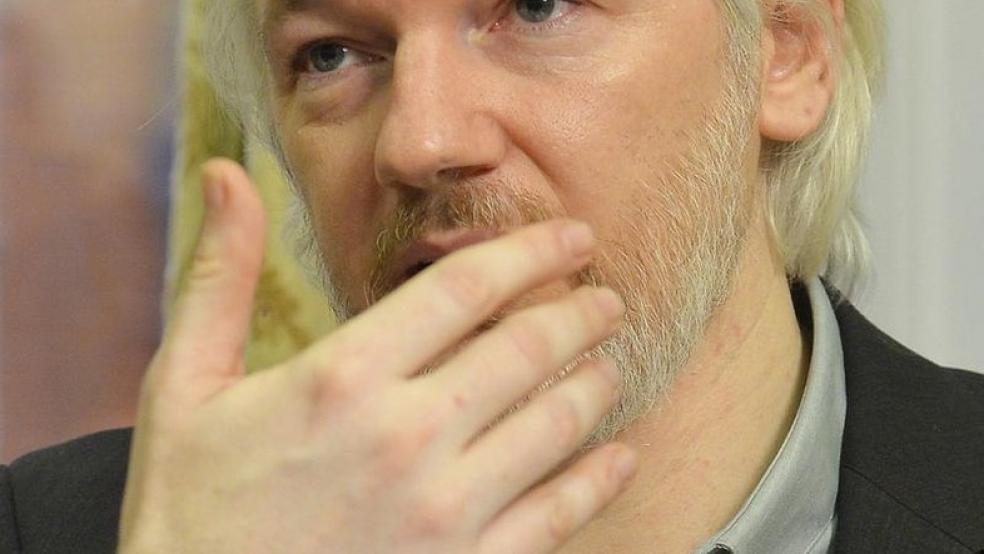President-elect Donald Trump appears to have bought into the idea that there is a conspiracy within the entire United States Intelligence Community to blame the Russian government for cyberattacks that compromised the Democratic National Committee and senior figures in the party in the run up to the 2016 presidential election.
After months of casting doubt about the consensus finding of intelligence agencies that the hacks, and the dissemination of files and emails, was orchestrated by Moscow, Trump on Tuesday night used Twitter to suggest that intelligence officers had been forced to delay a briefing on the hacking because of a lack of evidence.
Related: Trump and the GOP Are On a Collision Course over Russian Sanctions
The "Intelligence" briefing on so-called "Russian hacking" was delayed until Friday, perhaps more time needed to build a case. Very strange!
— Donald J. Trump (@realDonaldTrump) January 4, 2017
Administration officials told news organizations that they were mystified by the President-elect’s suggestion that the intelligence agencies had delayed the briefing, saying that it had always been scheduled for Friday.
Trump followed up on Wednesday morning with another tweet referring to a televised interview with WikiLeaks founder Julian Assange that aired Tuesday night. Assange, whose organization released thousands of hacked emails from the DNC and from Democratic presidential candidate Hillary Clinton’s campaign chairman John Podesta, spoke to Fox News personality Sean Hannity, an unabashed cheerleader for Trump throughout the presidential campaign.
During the interview, Assange repeated his denial that WikiLeaks received the hacked information from the Russian government and claimed that Podesta had fallen for a hacking method so rudimentary a child could have used it.
Julian Assange said "a 14 year old could have hacked Podesta" - why was DNC so careless? Also said Russians did not give him the info!
— Donald J. Trump (@realDonaldTrump) January 4, 2017
Related: Trump Steps Up Effort to Discredit Sanctions Against Russia
Assange also criticized a preliminary report into the hacking issued by U.S. intelligence agencies as “either a deliberate attempt to mislead or thoroughly incompetent work.”
Trump’s criticism of U.S. intelligence agencies is not new. Since last summer, when the Intelligence Community released a statement saying that they believed the hacking attacks on Democrats were orchestrated by Russia with an aim to disrupt the presidential election, he has defended Russia, claiming that there is no evidence of the Kremlin’s involvement.
Trump’s apparent decision to side with Assange against the U.S. Intelligence Community suggests that his already strained relationship with those agencies is not going to improve any time soon.
In an interview with PBS, conducted before Trump’s latest suggestion that his agency is trying to hoodwink the public, Central Intelligence Agency Director John Brennan said that a comprehensive assessment of the intelligence agencies’ findings with regard to the hacking is nearing completion and will be delivered to President Obama and President-elect Trump later this week.
He defended the work of his colleagues against Trump’s criticism of past failures and said, “There is no intelligence community worldwide that has the capabilities, the expertise, the analytic capability as the U.S. intelligence community. And so I would suggest to individuals who have not yet seen the report, who have not yet been briefed on it that they wait and see what it is that the intelligence community is putting forward before they make those judgments.”
Related: Making Friends with Russia May Be Harder than Trump Seems to Think
Brennan also took a swipe at Assange, saying that the WikiLeaks founder, who has been holed up in the Ecuadorian embassy in London for five years fighting extradition to Sweden on sexual assault charges (which he adamantly denies) is “not exactly a bastion of truth and integrity.”
Brennan continued, “And so, therefore, I wouldn’t ascribe to any of these individual making comments that it is providing the whole, unvarnished truth. Again, this report is going to include what it is that we know about what happened, what was collected, what was disclosed, and what the purpose and intent of that effort was.”





